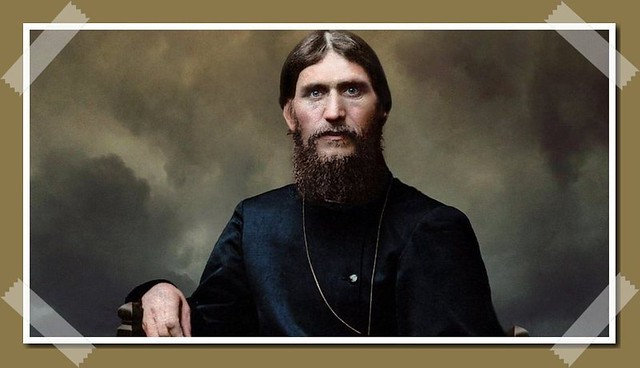Rasputin, Grigori Yefimovich

Grigori YefimovichRasputin (c. 1872–1916) Russian mystic, healer, and prophet who predicted his own death, the deaths of the czar Nicholas II and his family, and the downfall of the nobility in Russia. His unusual abilities were similar to those of Wizards and cunning men.
Grigori Yefimovich Rasputin was born in Pokrovskoye to Siberian peasant parents; he may have been the distant descendant of Siberian shamans. As a youth he worked as a carter and acquired an early reputation for fighting, drinking, and womanizing. He also was attracted to religion.
At age 20, he married a woman four years older than he and became a farmer. They had a son, who died as an infant. Not long after that, Rasputin experienced a vision of the Virgin Mary calling to him, and he set out on a two year religious pilgrimage to Mount Athos in Greece. When he returned home, he was changed, possessing the ability to heal and cure by prayer. He set himself up as a starets, an unordained holy man. When his popularity threatened the village priest, Rasputin left town.
He was drawn to St. Petersburg, Russia’s capital, where the nobility and high society was intensely interested in the occult and Spiritualism, due in large part to the 1871 visit by the famed English medium, Daniel Dunglas Home. The atmosphere was ripe for someone like Rasputin to be noticed.
Despite his scruffy appearance and odd ways, Rasputin gained quick fame with his healing ability. He attracted the attention of the royal family, Nicholas and Alexandra, whose sole male heir, Alexis, was threatened by hemophilia. Rasputin was able to alleviate the boy’s suffering. Alexandra became devoted to him, which aroused jealousy and enmity among others in court.
Rasputin’s licentious behavior exacerbated his lack of popularity. He boasted of his early days of womanizing and preached that one must sin before one can be redeemed. He acquired numerous mistresses. By 1911 his behavior was considered a scandal and disgrace. Opposition to him grew, and in 1916 a group of nobles plotted to kill him.
Rasputin divined his own death, which he wrote down in a letter. He predicted that he would be dead by January 1, 1917. If peasants killed him, the monarchy would continue and prosper, but if the nobles killed him, the royal family would die within two years, and the aristocracy would be plunged into trouble for 25 years, after which it would be eliminated from the country.
The circumstances of Rasputin’s death are bizarre. On the night of December 29, 1916, Rasputin attended a midnight tea to which he had been invited in the home of Prince Feliks Yusupov, one of his enemies. He allegedly was fed cakes and wine laced with cyanide, which did not kill him. Yusupov then shot him. Rasputin collapsed, then jumped up, and dashed into the courtyard. Yusupov shot him again and beat him with an iron bar. Still he remained alive. The desperate conspirators dragged him to the frozen Neva River, bound him, and pushed him through a hole in the ice. When his body was recovered, the cause of death was determined as drowning; no traces of poison were detected.
True to Rasputin’s Prophecy, the royal family was murdered within two years. The Russian Revolution and World War I plunged the country into chaos and threatened the old aristocratic order. The nobility finally came to an end 25 years later, in World War II, at the hands of Josef Stalin.
See also Cheiro.
FURTHER READING:
- De Jonge, Alex. Life and Times of Grigorii Rasputin. New York: Dorset, 1982.
- Wilson, Colin. The Occult. New York: Vintage Books, 1973.
SOURCE:
The Encyclopedia of Magic and Alchemy Written by Rosemary Ellen Guiley Copyright © 2006 by Visionary Living, Inc.










